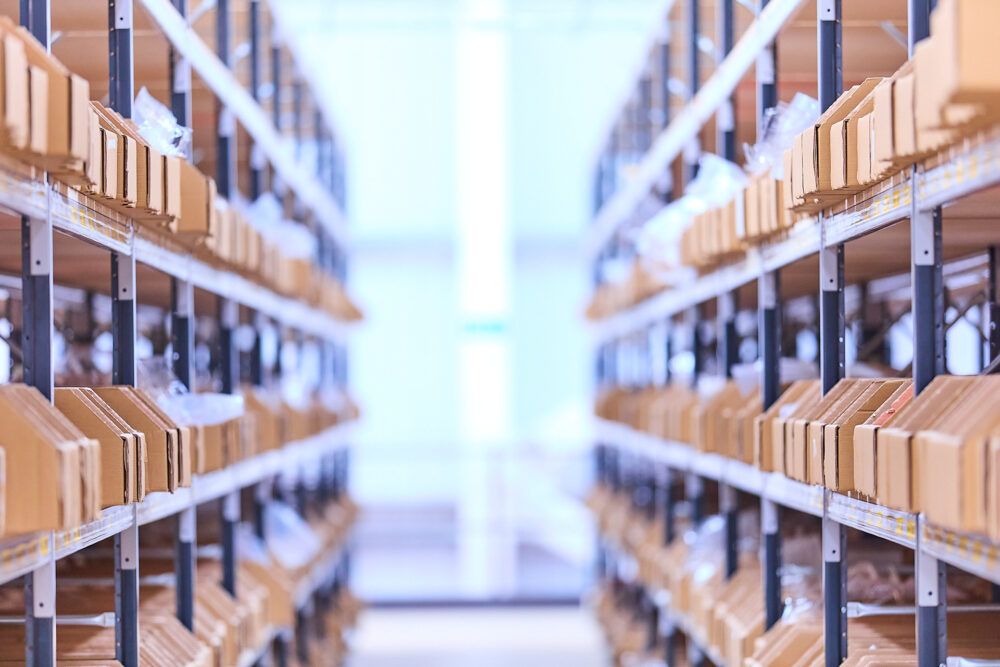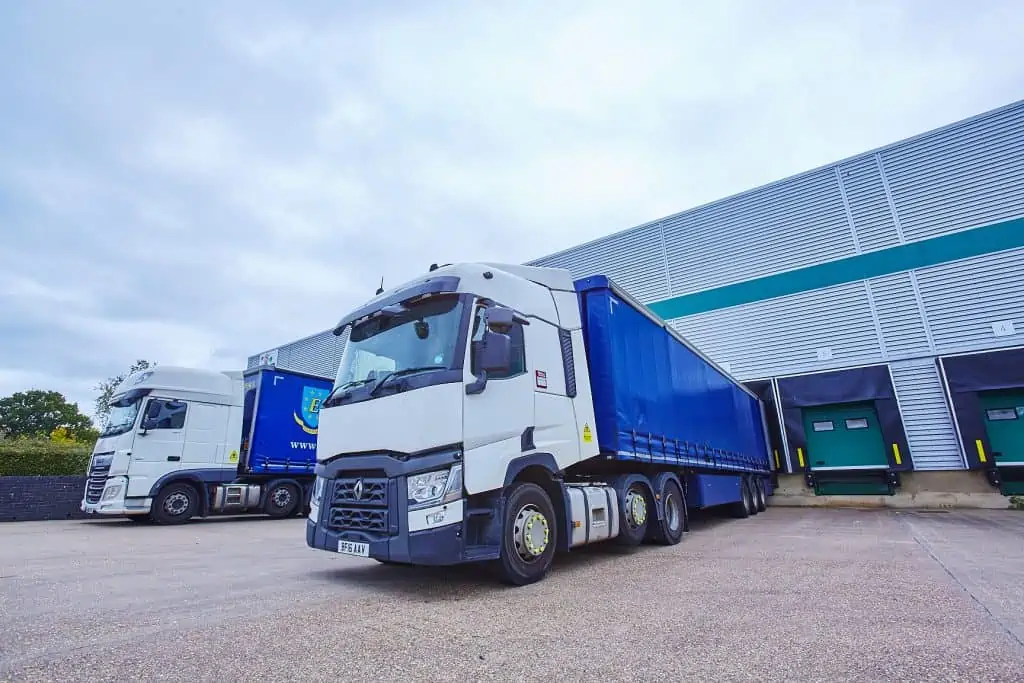
With a population of over 750 million, high internet penetration and widespread smartphone use, Europe remains one of the world’s most dynamic e-commerce regions. It’s no surprise that US brands see it as a prime opportunity for international growth.
But while the market potential is significant, so is the complexity.
Each country brings its own tax systems, regulatory frameworks, languages, currencies and consumer behaviors – requiring brands to understand the unique dynamics of each. Selling into the UK, for example, presents very different challenges than launching in Germany, Spain or the Nordics.
In this guide, we’ll explore how ERP systems can help ambitious brands overcome these challenges, centralizing operations, streamlining processes and scaling sustainably across borders.
Jump to:
- What is an ERP System?
- Why ERP Systems Are Crucial for European Expansion
- 7 Key Features of ERP
- Advantages and Disadvantages of ERP Systems
- What Type of E-Commerce Business Needs an ERP?
- Should You Implement an ERP System?
- ERP + 3PL: A Smarter Path to European Growth
- Ready to expand your E-Commerce Business in Europe?
What is an ERP System?
An ERP (Enterprise Resource Planning) system is a centralized software platform that streamlines core business functions across departments – covering everything from finance and inventory to sales, fulfillment and customer service.
For e-commerce businesses, an ERP system brings all your operations together by unifying your online store orders, inventory and customer data in real time. Instead of juggling multiple standalone tools – one for stock management, order processing, accounting and CRM – an ERP seamlessly integrates these processes into one single platform, improving accuracy, visibility and efficiency.
Valued at USD 81.15 billion in 2024, the global ERP software market size is projected to reach USD 229.79 billion by 2032. With retailers able to make smarter decisions, enjoy faster processes and better customer experiences, ERP systems have become an essential tool for businesses of all sizes looking to scale effectively in a competitive global market.
For e-commerce brands, key ERP functionalities include:
- Inventory and warehouse management
- Product Information Management (PIM)
- Order processing and fulfillment coordination
- Real-time sales and inventory tracking
- CRM and customer service integration
- Returns and reverse logistics management
- Tax and compliance automation
- Multi-currency and multi-language support
- Financial reporting and e-commerce accounting
- Integration with e-commerce platforms and marketplaces
Why ERP Systems Are Crucial for European Expansion
1. Market Diversity Requires Operational Sophistication
As we’ve seen, a “one-size-fits-all” operational approach simply doesn’t work across the expanse of Europe, with each market bringing its own set of requirements.
- Post-Brexit UK trade involves additional customs declarations and duty considerations
- German consumers may expect precise delivery tracking and invoice-based payment options
- French shoppers often demand customer support in their native language
An ERP system helps manage this diversity by centralizing control while still enabling localization. For instance, you can standardize your core workflows – order management and inventory tracking – while adapting elements such as tax, language and compliance, depending on the market.
2. Centralization = Compliance + Control
Instead of managing separate systems for orders, shipping and finance, with an ERP system, everything is connected. This avoids the fragmentation that often derails growing eCommerce brands and is critical when navigating:
- VAT thresholds and tax reporting
- Country-specific packaging regulations
- GDPR-compliant customer data handling
- Timely and accurate customs declarations
Thanks to the automation offered by an ERP, you can be assured these processes will happen correctly and efficiently – reducing errors, saving time and lowering risk.
3. Built for Growth and Scalability
Once the preserve of complex, enterprise-level organizations, such as Microsoft Dynamics, SAP or Oracle, ERP systems are now being adopted by online businesses of all sizes. Designed to scale with your growth, a modern ERP can support new storefronts, SKUs, currencies and sales channels – whether you’re expanding into one European market or ten, without the need for a complete system overhaul.
For US brands growing fast or looking to expand across multiple markets, this type of scalability is essential.
7 Key Features of ERP
If you’re still relying on spreadsheets or entry-level tools, you may be able to manage domestically – but will it cope with cross-border growth?
As your e-commerce business expands and operations spread across multiple platforms, here are some of the ways an ERP system helps to streamline and simplify that complexity:
Supply Chain Management
By coordinating your supply chain from sourcing to last-mile delivery, ERP systems help you track lead times, manage suppliers and spot bottlenecks in real time.
Inventory Management
Get an overview of your inventory across warehouses, 3PL partners and marketplaces. Automate stock replenishment, avoid overstocking and keep your customers happy with accurate inventory availability.
Warehouse Management
From pick-and-pack workflows to returns and restocking, ERP helps optimize warehouse performance – whether you manage your own DC or use third-party fulfillment in Europe.
Enhanced Customer Experience
Manage customer interactions and purchase histories in one place. ERP systems enable more personalized service and efficient issue resolution – crucial in markets (such as the UK) where customer expectations are high.
Order Processing
Intelligently route orders from your online shop based on location, stock availability or delivery speed. Automate invoices, confirmations and returns processes to reduce friction and improve trust.
Data Visibility
ERP offers real-time data, giving you a bird’s-eye view of your operations – sales trends, top-performing SKUs, order statuses and more – across every region.
Business Intelligence and Analytics
Run region-specific profitability reports, assess performance by sales channel and fine-tune pricing, promotions and operations based on real-time data.
Advantages and Disadvantages of ERP Systems
The Benefits
Increased Efficiency
Automation replaces manual work across teams – from finance to operations – boosting productivity and reducing errors.
Real-Time Data
ERP systems unify your insights so you can act fast on what’s really happening in your business.
Improved Customer Experiences
From faster delivery times to seamless returns and personalized service, ERP helps you exceed expectations.
Scalability
No matter how many countries you’re entering, ERP systems flex as your business grows, without the need for major tech revisions.
The Challenges
Upfront Investment
ERP platforms can be expensive to license, implement and maintain – especially for smaller brands.
Implementation Complexity
Rolling out an ERP system takes planning, time and change management. Done poorly, it can slow operations.
Potential Data Security Risks
You’re consolidating sensitive information – customer data, financials, IP – so you need robust cybersecurity measures.
Training Requirements
ERP success depends on your team using it correctly. Training and ongoing support are critical.
What Type of E-Commerce Business Needs an ERP?
When it comes to cross-border e-commerce, while large enterprise brands often implement ERP systems early, forward-thinking mid-size and scaling businesses are also now making the leap.
An ERP system is likely a good fit for your business if you:
- Manage multiple storefronts, channels, or marketplaces
- Are actively expanding into Europe or other international markets
- Need to improve inventory accuracy and order speed
- Use multiple software tools that don’t talk to each other
- Struggle with tax, VAT or regulatory compliance
- Want better visibility into performance across the business
- Plan to scale operations significantly over the next 12–24 months
Should You Implement an ERP System?
ERP systems work best when there’s a clear problem to solve – and the internal resources to do it right. The key is making sure your investment is in line with your operational needs and strategic direction.
You might be ready for an ERP if you’re expanding into Europe and need to unify your back-office systems. Common triggers include disjointed fulfillment processes, rising customer complaints about slow or incorrect orders – or teams feeling bogged down by manual admin.
However, while the results can be transformative, an ERP system is not necessarily the right fit for every business or every stage of growth
If you haven’t clearly defined your goals or expected ROI, it’s too soon. Businesses heavily reliant on outsourced fulfillment or those with simple, well-integrated systems in place may not benefit from the added complexity. And if your team lacks the time or capacity to manage an ERP rollout, implementing one could end up being more of a distraction than a solution.
ERP + 3PL: A Smarter Path to European Growth
If your business is growing and you want to move from guesswork to data-driven decision-making, an ERP system can be the ideal solution.
But while the right software gives you the digital infrastructure to grow, your physical operations still need to be rock-solid – especially when entering Europe for the first time. That’s why many US brands find it easier to combine ERP implementation with a trusted third-party logistics (3PL) partner to handle the complexities of local warehousing, fulfillment, customs and delivery.
Ready to expand your E-Commerce Business in Europe?
By aligning your digital and physical infrastructure, you can offer European customers fast, accurate service, managing cross-border complexity at scale, without overstretching your internal teams.
As the trusted 3PL partner for ambitious US brands expanding into the UK and Europe, we work seamlessly with your ERP system to deliver scalable, tech-integrated fulfillment across multiple countries – handling warehousing, pick and pack, delivery and returns with precision and care
From the moment of purchase to the last mile of delivery, we ensure your European expansion is built on performance, efficiency and brand-loyalty.
Get in touch to find out how we can support your ERP-connected fulfillment strategy and help your business thrive across Europe.
Contact Us
Written by Tom Ashley
Heads up our Senior Leadership Team and is busy steering ILG’s strategic transformation, international expansion and alignment with our latest acquisition, GFS carrier management solutions. Tom’s 15 years at ILG have seen him hold a long list of senior positions across the business in Sales, Client Services, Commercial, IT and Operations, before becoming Deputy Managing Director and later MD. He is also a regular contributor on our ILG VIBE Beauty panel events.
More insights >
E-Commerce Fashion Returns: What Customers Want and How You Can Provide It
In this article we look at ways to reduce your returns burden, the importance of a well-managed returns strategy and the benefits it can bring to e-commerce brands and customers.
Key Considerations when Importing Stock
This guide covers the key considerations when importing stock into the UK, helping you plan effectively and keep your supply chain moving.

